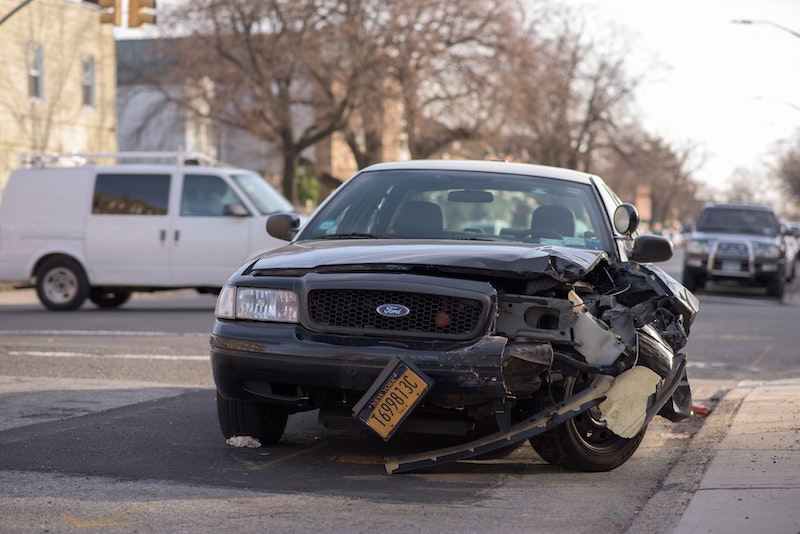Accident Report
An accident report details the events of a car accident, with all the details about what happened, who was involved, any property damage, etc.

An accident report details the events of a car accident, with all the details about what happened, who was involved, any property damage, etc.

An accident report contains the details surrounding a car accident—what happened in a traffic crash, the date of the crash, who was involved, any property damage, and any injuries.
An accident report records the details from a car accident. Crash records are an important part of filing a claim with an insurance company. A copy of the report could help decide who is at-fault in the accident and determine who pays for necessary repairs, property damage, or medical bills.
Not all car accidents require an accident report. It’s not necessary to call a police officer for a minor motor vehicle accident.
However, here is when you should contact the police department to send out a police officer to file an official police report:
Depending on your state, you have 5 to 30 days after a traffic accident to file an accident report. If you fail to do so, the DMV could take enforcement action, up to and including suspending your license.
If you’ve called the police department, wait at the scene of the accident until the police officer arrives. They will collect all the information needed for the police report from you and the other driver.

But if you’re just exchanging information with the other driver and plan on filing a driver’s crash report with a law enforcement agency later, you’ll need to collect these things:
A driver’s crash report is a fillable form that you complete and file with the police department, called a CR-2 form in some states. The official form completed by the law enforcement officer will have a different name.
Once a law enforcement agency has filed the police report, you’ll need the report number to give to your insurance company. They’ll review the accident report and any crash data to assist with their investigation and work with the other driver’s insurance company to cover repairs or medical bills, if necessary.
A few quick words, because we <3 our lawyers: This post is general in nature, and any statement in it doesn’t alter the terms, conditions, exclusions, or limitations of policies issued by Lemonade, which differ according to your state of residence. You’re encouraged to discuss your specific circumstances with your own professional advisors. The purpose of this post is merely to provide you with info and insights you can use to make such discussions more productive! Naturally, all comments by, or references to, third parties represent their own views, and Lemonade assumes no responsibility for them. Coverage and discounts may not be available in all states.
Please note: Lemonade articles and other editorial content are meant for educational purposes only, and should not be relied upon instead of professional legal, insurance or financial advice. The content of these educational articles does not alter the terms, conditions, exclusions, or limitations of policies issued by Lemonade, which differ according to your state of residence. While we regularly review previously published content to ensure it is accurate and up-to-date, there may be instances in which legal conditions or policy details have changed since publication. Any hypothetical examples used in Lemonade editorial content are purely expositional. Hypothetical examples do not alter or bind Lemonade to any application of your insurance policy to the particular facts and circumstances of any actual claim.